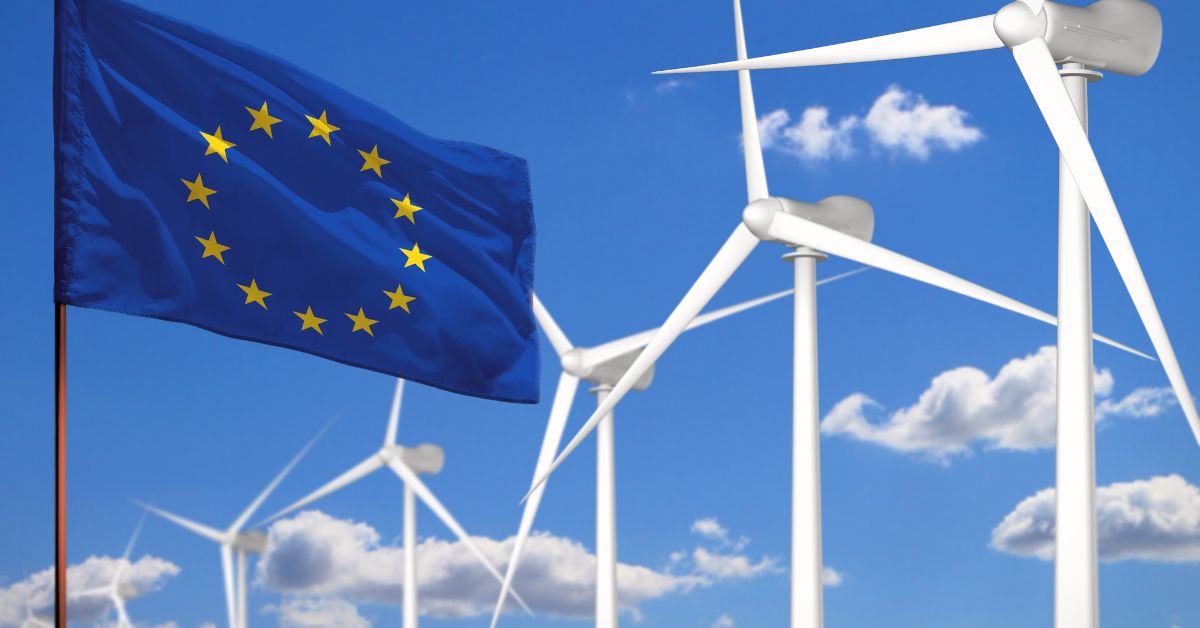
Discover how EFRAG’s new sustainability standards impact SMEs, from reporting challenges to opportunities for growth, finance, and advantage.
The European Financial Reporting Advisory Group (EFRAG) has long played a vital role in aligning European accounting practices with global standards.
In recent years, its mandate has expanded to encompass sustainability reporting, an area of growing strategic importance for companies across all sectors.
Under the Corporate Sustainability Reporting Directive (CSRD), EFRAG has been entrusted with the development of the European Sustainability Reporting Standards (ESRS), which aim to ensure that companies communicate meaningful, comparable, and reliable environmental, social, and governance (ESG) data.
Additionally, in recent times, the advent of the Omnibus Directive has led to the rise of voluntary reporting, such as the LSME and VSME standards, as 80% of companies subject to CSRD are now out of scope.[MM1] [DG2]
The purpose of these standards is not merely bureaucratic.
On the contrary, they reflect a shift in global capital markets, where sustainability performance is now viewed as a proxy for long-term business resilience and a metric for managing systemic risks.
The ESRS are not only relevant for publicly listed or large companies; their influence extends into value chains and financing conditions, affecting Small and Medium-sized Enterprises (SMEs) both directly and indirectly.
EFRAG has acknowledged that SMEs require tailored guidance to avoid disproportionate burdens while still encouraging them to participate in Europe’s transition towards a sustainable economy.
In response, EFRAG is actively developing proportionate and voluntary sustainability disclosure standards for SMEs.
Key Components of the European Sustainability Reporting Standards
The ESRS are designed around a core set of principles and detailed topical standards that collectively enable companies to report on sustainability in a way that is integrated with their financial disclosures.
Key components include:
- ESRS 1 – General Requirements: Establishes the reporting architecture, materiality assessments, and the principles of connectivity between financial and sustainability information;
- ESRS 2 – General Disclosures: Covers the company’s governance, strategy, risk management, and metrics used for sustainability matters;
- Topical Standards:
- Environmental (E1-E5): Cover climate change, pollution, water and marine resources, biodiversity, and resource use.
- Social (S1-S4): Address the workforce, value chain workers, affected communities, and consumers.
- Governance (G1): Relates to business conduct, including anti-corruption practices, political engagement, and lobbying.
Each company will be required to assess the materiality of these topics through a “double materiality” lens, examining both how sustainability issues affect the company and how the company impacts people and the environment.
The Impact of EFRAG Standards on SMEs
Although the mandatory application of ESRS initially targets large companies and listed SMEs, their implications extend to all businesses within interconnected supply chains.
As larger companies work to comply with ESRS, they will increasingly require ESG data from their suppliers, many of whom are SMEs.
This cascading effect places indirect reporting obligations on SMEs, particularly those that serve regulated or multinational clients.
Moreover, financial institutions are also revising their risk models and lending practices to incorporate ESG factors. As a result, SMEs seeking funding or investment may find that transparent sustainability reporting is not a nice-to-have but a prerequisite.
Challenges SMEs May Face with EFRAG Compliance
The transition to structured sustainability reporting presents several hurdles for SMEs:
- Resource and Capacity Constraints: Many SMEs lack the human capital, financial resources, and technological infrastructure needed for comprehensive ESG data collection and reporting;
- Complexity and Technical Language: The ESRS, while methodical, use technical terminology and complex frameworks that may be unfamiliar to SME operators, particularly in non-financial sectors;
- Uncertainty Over Expectations: SMEs may struggle to interpret how the standards apply to them, especially in the absence of regulatory mandates or clear sector-specific guidance;
- Administrative Burden: Implementing governance and internal controls to meet documentation and assurance requirements can overwhelm SMEs already focused on core business operations.
These challenges underscore the necessity for proportionate standards that preserve the core aims of ESG transparency without imposing unsustainable costs on smaller entities.
Benefits for SMEs Adopting EFRAG Standards
Despite these challenges, the adoption of EFRAG-aligned sustainability practices can yield meaningful advantages for SMEs:
- Increased Business Opportunities: Demonstrating ESG performance can serve as a competitive differentiator, opening doors to contracts with larger clients seeking compliant supply chain partners;
- Improved Financial Standing: Banks and investors are increasingly using ESG disclosures to evaluate creditworthiness and funding eligibility leading to the translation of transparency into better financing terms;
- Enhanced Reputation and Trust: Consistent and reliable sustainability reporting helps build trust with stakeholders, including customers, employees, regulators, and the local community;
- Operational Resilience: Understanding material ESG risks, such as energy dependency, labor conditions, or exposure to climate impacts, enables SMEs to take proactive steps and become more resilient in volatile markets.
Strategies for SMEs to Prepare for EFRAG Standards
To prepare for the broader impact of ESRS, SMEs should take a phased and strategic approach to ESG integration:
- Start with Materiality: Conduct a materiality assessment to identify the most relevant ESG topics for your business, using stakeholder input and industry benchmarks as guides;
- Develop Baseline Metrics: Gather data on a few key indicators that are relevant to your operations;
- Invest in Training and Awareness: Build internal knowledge by training staff, appointing sustainability champions, and participating in sectoral initiatives and workshops;
- Leverage Digital Tools: Many cloud-based solutions and ESG platforms now offer affordable modules tailored for SMEs, helping automate data collection, benchmarking, and report generation.
Simplified Reporting for SMEs: The VSME Approach
EFRAG’s Voluntary Sustainability Reporting Standard for SMEs (VSME) is designed to address the very limitations that hinder broad ESG adoption among smaller businesses. The standard comprises two modules:
- The Basic Module: Tailored for micro and small businesses, it focuses on high-level, qualitative disclosures and simple quantitative indicators, ideal for those new to ESG reporting;
- The Comprehensive Module: Aimed at more mature or medium-sized enterprises, it enables deeper reporting on selected ESG topics while still keeping complexity manageable.
The VSME standard is voluntary but is expected to gain traction as supply chain and financing demands evolve. By engaging with it, SMEs can signal forward-thinking practices and align with future regulatory expectations without taking on excessive burdens.
How EFRAG Standards Facilitate Access to Finance for SMEs
One of the most significant advantages of adopting sustainability standards is the improved ability to access finance.
European banks and investment firms, under the Sustainable Finance Disclosure Regulation (SFDR) and the EU Taxonomy Regulation, are increasingly mandated to disclose the sustainability credentials of their portfolios.
SMEs with clear ESG profiles, supported by structured reporting, are more likely to qualify for green loans, favorable interest rates, and ESG-linked investment programs.
Furthermore, many public procurement tenders and government support schemes are beginning to integrate ESG criteria as prerequisites for eligibility.
Navigating the Future of ESG Reporting
As ESG considerations become embedded in the DNA of European economic policy, SMEs cannot afford to remain on the sidelines.
The forthcoming EFRAG standards, particularly the VSME framework, offer a pragmatic path for SMEs to begin or enhance their sustainability journey.
The integration of sustainability reporting is no longer a matter of voluntary goodwill, it is an essential strategic imperative.
For SMEs aiming to secure long-term resilience, growth, and relevance in the evolving European marketplace, aligning with EFRAG’s sustainability framework is not just beneficial, it is necessary.



